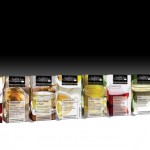Tea Usage Care and Cautions

Boston Port Bill, artist unknown, engraving, April 1774. A satire also known as “The Able Doctor, or America Swallowing the Bitter Draught” first published in London depicting America as the native American woman being forced down with tea (the outrageous tea tax and others) by the colonists. The carton was later copied and published in the Royal American Magazine in the colony. Well, we no longer face the violence of the colonists, but the brain wash and near cartel by giant corporations in effect force upon us what we consume. We have choices outside of that, just that we have to know we do.
Do’s and Don’ts
In the documentary film Food Inc., reports of horrid manipulations of our food systems and diet behaviours by giant corporations have made me think twice whenever I put something into my mouth. Am I consuming to nourish my body, or am I harming myself? Am I supporting a system that would continue to harm the well-being of my children and the children of my children? That film is only one of the many alarms that have rang in recent years.
Tea is one kind of product amongst the hundreds of grocery categories today. Like most others, tea can be wholesome and enjoyable, or it may not be as healthy a drink when you make a careless choice.
There are products that are adulterated for mass appeal, or cheaply produced for higher profits, as are in many other categories. There are also those that are produced in traditional manners for quality, mostly by small farms that have a strong pride and belief in what they do. These are products that usually deliver the most benefits of tea. They are mostly finer teas.
The care and caution needed in enjoying tea and benefiting from it, like in any other food and beverage categories, begin in selecting the right product.
Tea has also the double role of being a herb and a daily drink that one may consume a large amount of. Therefore, common sense in its usage is needed, no less than you should know about any of your food, drinks, supplements or even salt and water.
In this “Tea & Your Health” section, we shall discuss the health implications of tea. However, before going into that, here are a few pieces of common sense in tea usage for your quick reference:
Do’s
1. Drink it while it’s still hot
When something warm comes into our system, we are biologically prepared to absorb its contents. When it has turned cold, however, its pH value, without the stimulation of the heat that triggers the working of our system, may not be quite compatible with that in our stomach or our duodenum. This can potentially upset them if they are not already in good shape. Letting your tea run cold also affects its taste, too.
2. Select a respectable quality for your budget
In addition to the benefit of taste, fine teas are healthier with more salutary substances and safer because of none additives, less fluorides and oxalates.
3. Select a repertoire optimum for your individual health character
You may have a weaker stomach, or a hot temper, or PMS, or a perfectly healthy body; your body condition is different in the morning from the evening; the needs when you are stressed and when you are relaxed are not the same. Different persons may benefit better with different teas, because different teas have different health contributing characters. If you are interested check out our page concerning how perspectives through traditional Chinese medicine can help you choose a tea more wisely.
4. Use an effective filter for your tap water supply <read more about water>
Bad water (1) has as much bad effects as bad tea, if not more, though different in nature. A safe water supply plus good tea ensure your quality fluid intake.
5. Make it enjoyable
Make it easy for yourself to prepare tea, whether in your workplace or at home. Have the set up (teaware, water, etc) in a system fit for your physical environment so tea making can be an easy part of your routine.
6. Make it your staple drink as well as a special treat
Tea is the safest beverage for consuming throughout the day. If you have a good variety for use in different time of the day, it can enhance concentration, relaxation, digestion, as well as blood sugar stabilisation. Reserve a really special selection for a precious moment to carefully prepare as a special treat, either to share with your close one or for your own personal meditation time.
7. Balance your fluid intake with other beverages
As with food, your tea intake should also be balanced with other fluids. Soups, concoctions, juices, milks, herbs, honey, coffee, chocolate and wines can be delightful drinks and sources of supplementary salutary substances. Water is not to be neglected. There are also new trends such as vinegar and old favourites such as malt. I myself drink 2 to 3 litres of liquid a day, at least half of which is not tea.
Don’ts
1. Don’t let tea steep in the pot after it is properly infused
Most of tea’s salutary substances dissolve into water in the first few minutes of infusion. Findings have proved that prolonged soaking increases dramatically the fluoride and oxalic amounts in the tea liquor. After all, it affects the taste adversely too. Simply drain the pot into all the cups or into a decanter after the needed steeping time.










